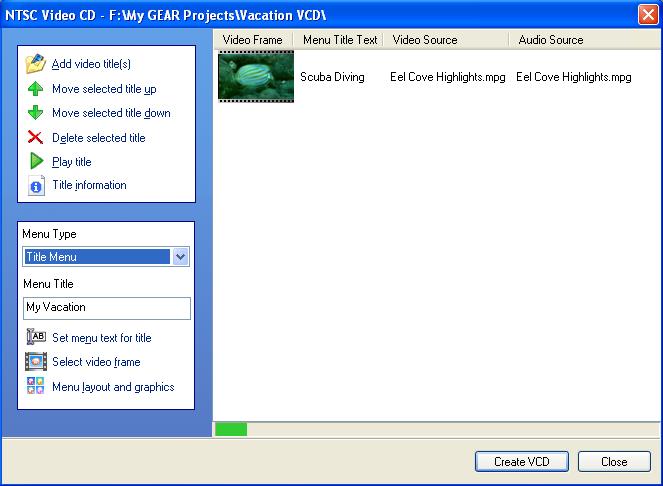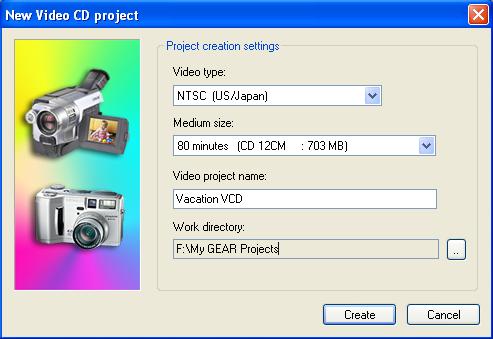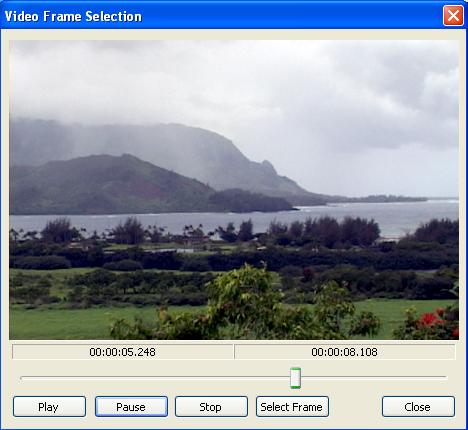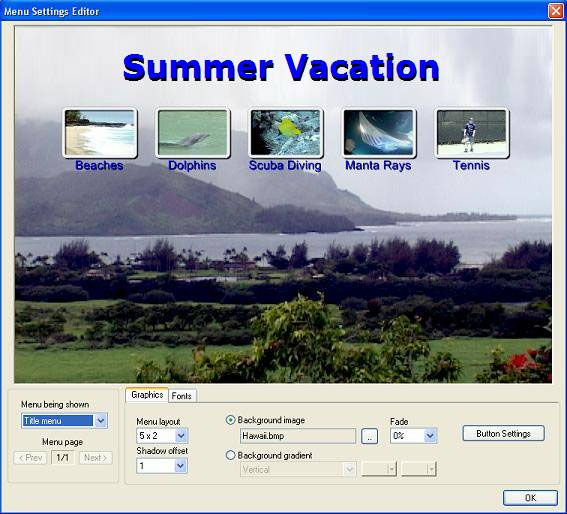| How to Create (Author) a Video CD (VCD) A Video CD can hold about 35 to 60 minutes of video, along with a stereo audio track. Most DVD players can play VCD discs, which are recorded to CD. The video quality is similar to VHS tape. In order to create a VCD from your captured video files, you must first encode the video to VCD format. When your video files are in MPEG-1 format, you are ready to create a VCD. This process is called "authoring". Authoring is the process of choosing the video segments to include on the disc, as well as creating the menus. GEAR will automatically generate all of the necessary files and structures when you are finished authoring the title. To author a VCD, choose "Author VCD Title..." from the "Author" menu.  The New Video project dialog box appears...

Under "Menu Title", you can enter the title that will be at the top of the main menu.
To set your menu options, select "Menu Layout and Graphics" from the video authoring window. The menu editing window appears...
Each title will automatically be arranged with a thumbnail video still picture. You can select the grid to place each title thumbnail on. Font sizes, type, and color can be adjusted from the font menu tab. Select a shadow offset to add three dimensional depth to the text on the screen. A background image can be selected, and faded if necessary. To select a frame of video as your background image, press the ".." button next to the background image filename. A window will appear asking you to select a file. Set the "files of type" to video, and select the video file that you want. The video frame selection window will appear, allowing you to play the video to choose the point that contains the best frame of video for your menu background (this function is described on the preceding page). Press "select frame" when you get to the video frame that you would like to use for your menu background. When your VCD is authored, press "Create VCD" to create your title. This will return you to the main GEAR project interface. Your new VCD title will be loaded into a new VCD project (volume) in GEAR, ready to write to disc. You can add any additional files to the disc (in the remaining space available), and burn it when you are ready. Note: VCD titles can be played back in most, but not all DVD players. They can also be played using a PC with the appropriate media player software. |




